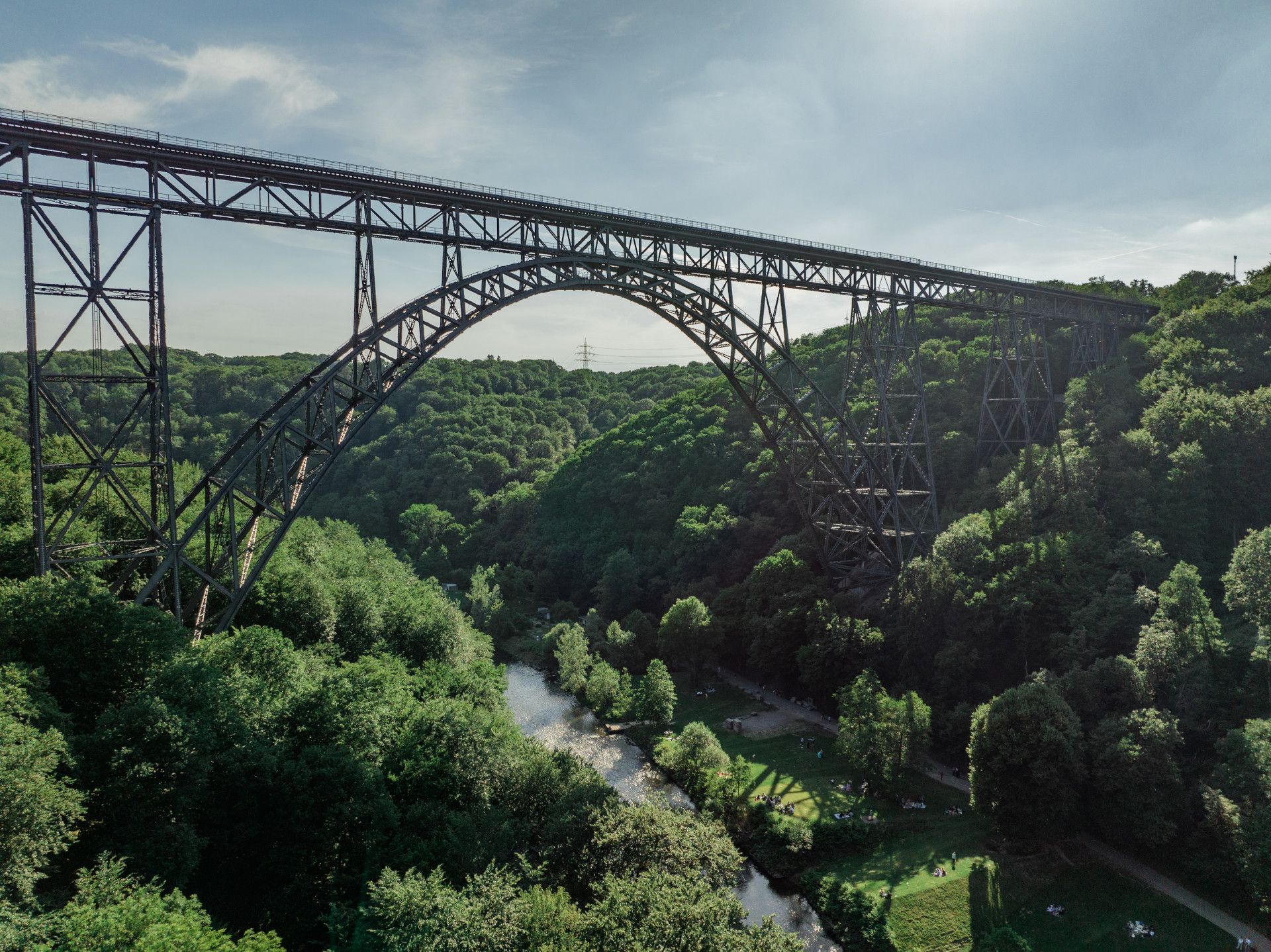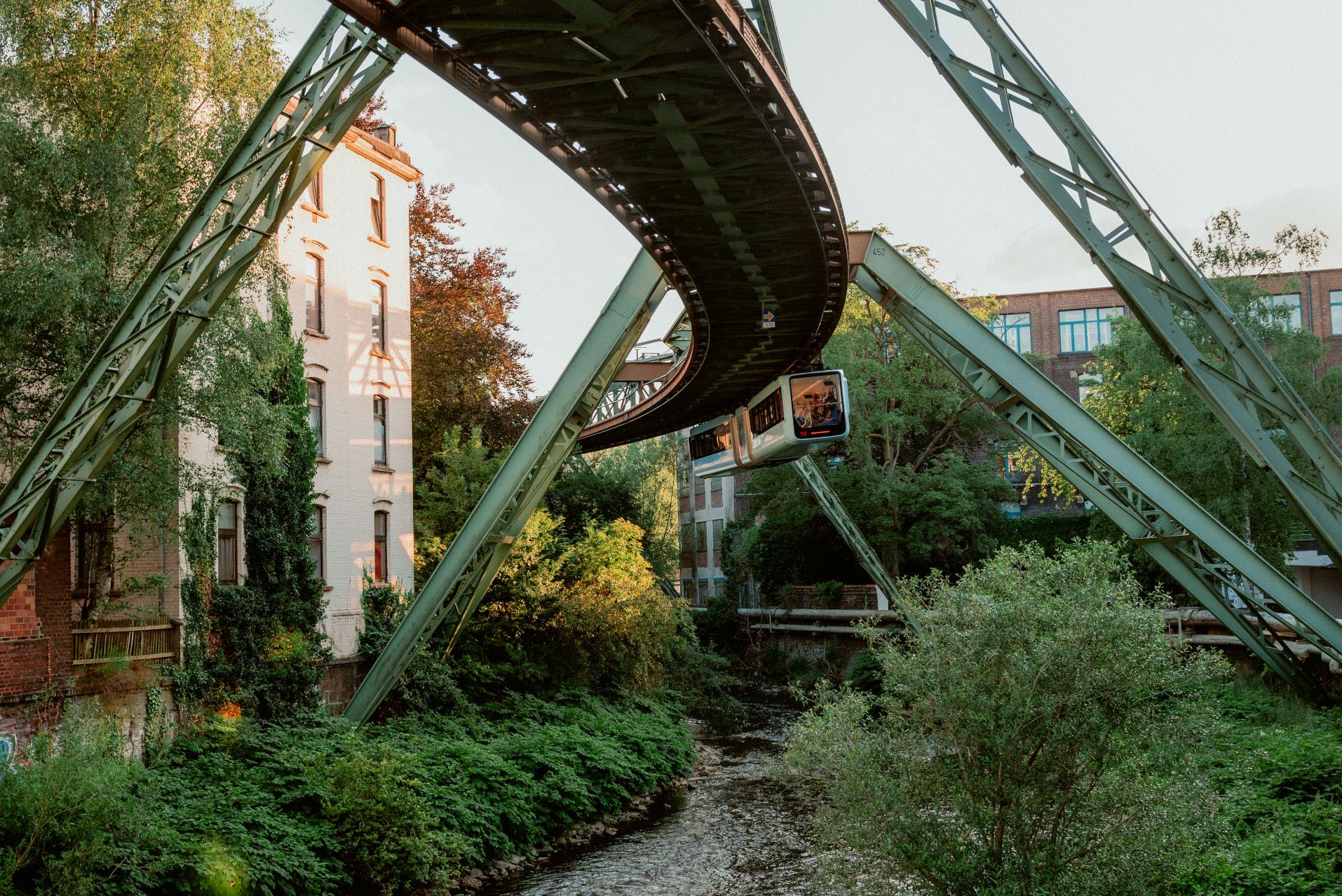Want more tips?
- Stroll through the hip Luisenviertel neighbourhood in Wuppertal
- Visit Solingen-Gräfrath with its historic old town centre
- Climb the largest railway bridge in Germany
- Visit the Röntgen Museum in Remscheid


The city triangle with character
As we all know, you can't choose your relatives and neighbours. So we are all the luckier that the chemistry is right here in the Bergisch city triangle. We - that is Wuppertal, Solingen and Remscheid - are a really good team. Neighbours and best friends. Sometimes we do things together and sometimes we each do our own thing. Just like in any good relationship. Can we invite you on a city trip?
I'll just jump the queue. After all, I have something that can't be found anywhere else in the world. My suspension railway is legendary. It has been gliding through Wuppertal for more than 120 years now, as if it were the most normal thing in the world. And it is for the people here. But wait and see when you get on for the first time and view the Wupper valley from above ... There are also plenty of worthwhile places to get off. I'll just mention the Von der Heydt Museum or the zoo.
Next it's my turn: Solingen. I am definitely the sharpest city in the neighbourhood. For generations, cutlery of all kinds has been manufactured in my neighbourhood and shipped all over the world. From small pocket knives to large blades, everything is guaranteed to be "Made in Germany". Would you like to watch the production process? No problem, but you'd better cover your ears. Because it gets pretty loud when the LVR Industrial Museum Gesenkschmiede Hendrichs or when the machines are set in motion in the small show grinding shops.
Incidentally, every child knows me too. Or more precisely: one of my most famous sons, of whom we are particularly proud here in Remscheid. Wilhelm-Conrad Röntgen was the first scientist ever to be honoured with the Nobel Prize for Physics in 1901. I don't want to rule out the possibility that the sight of the laboratory might give you the creeps, but you should definitely take a look at the German Röntgen Museum, which we have built in honour of the world-famous Remscheid scientist in the picturesque old town of Lennep.
Insider tips & excursion ideas
Fancy some mail? Then subscribe here to our every two months newsletter with information on special travel offers, selected short tips for short trips and other insider tips for travelling in North Rhine-Westphalia.